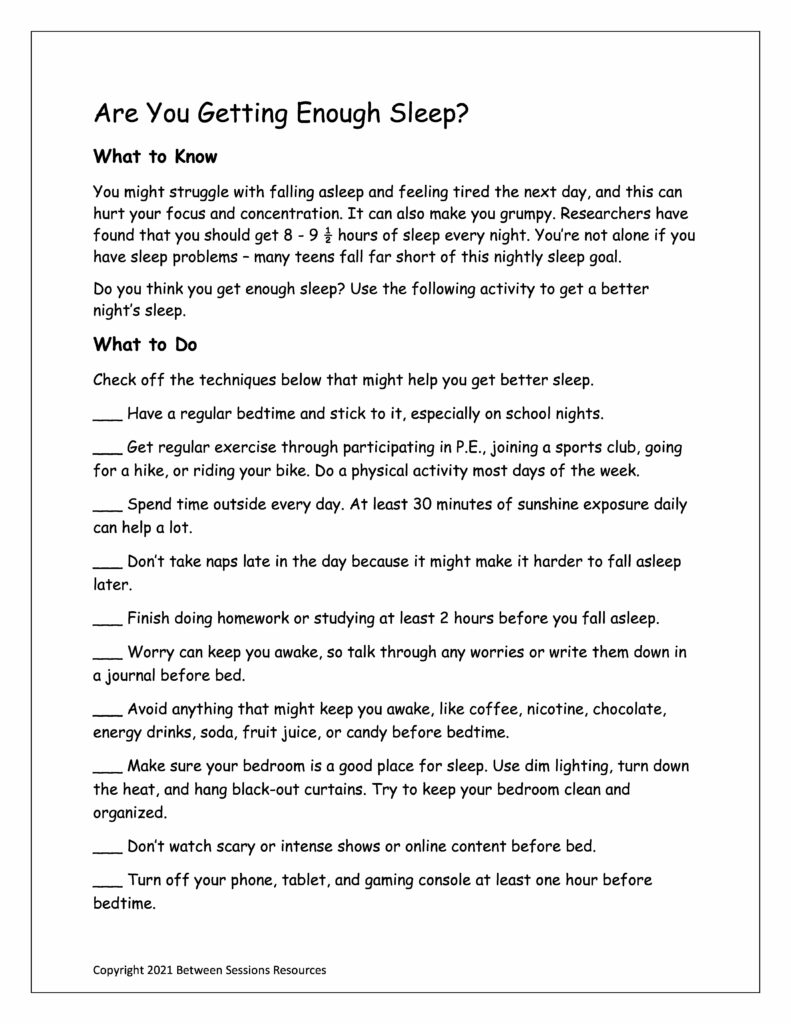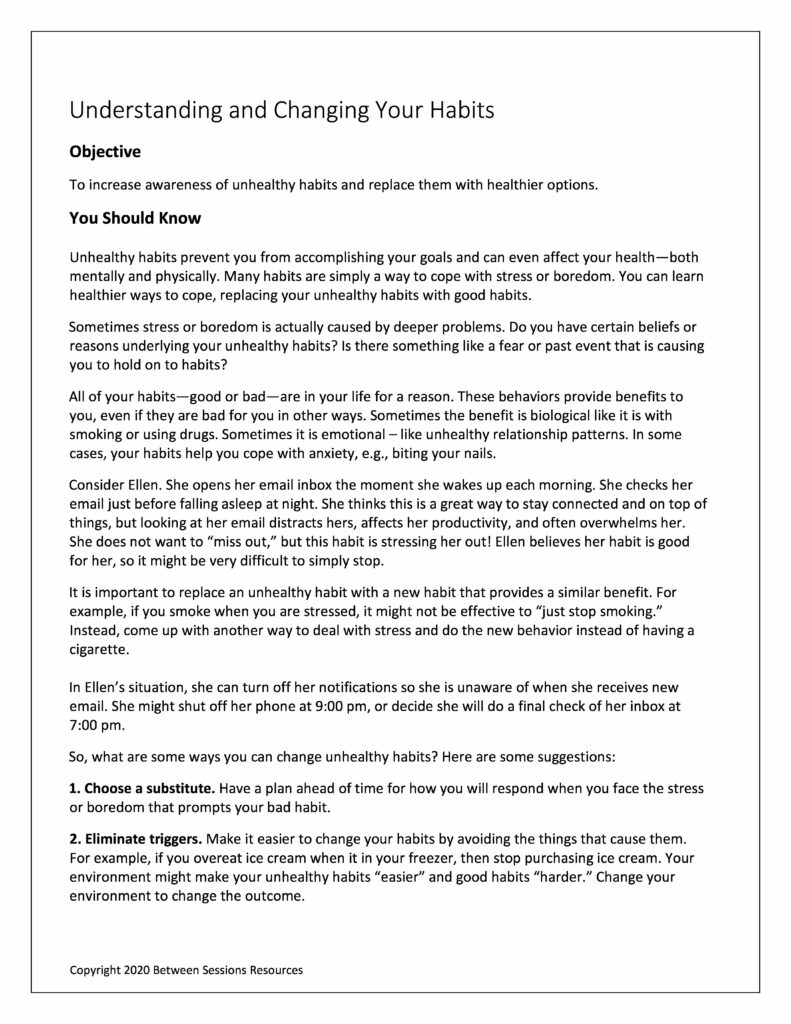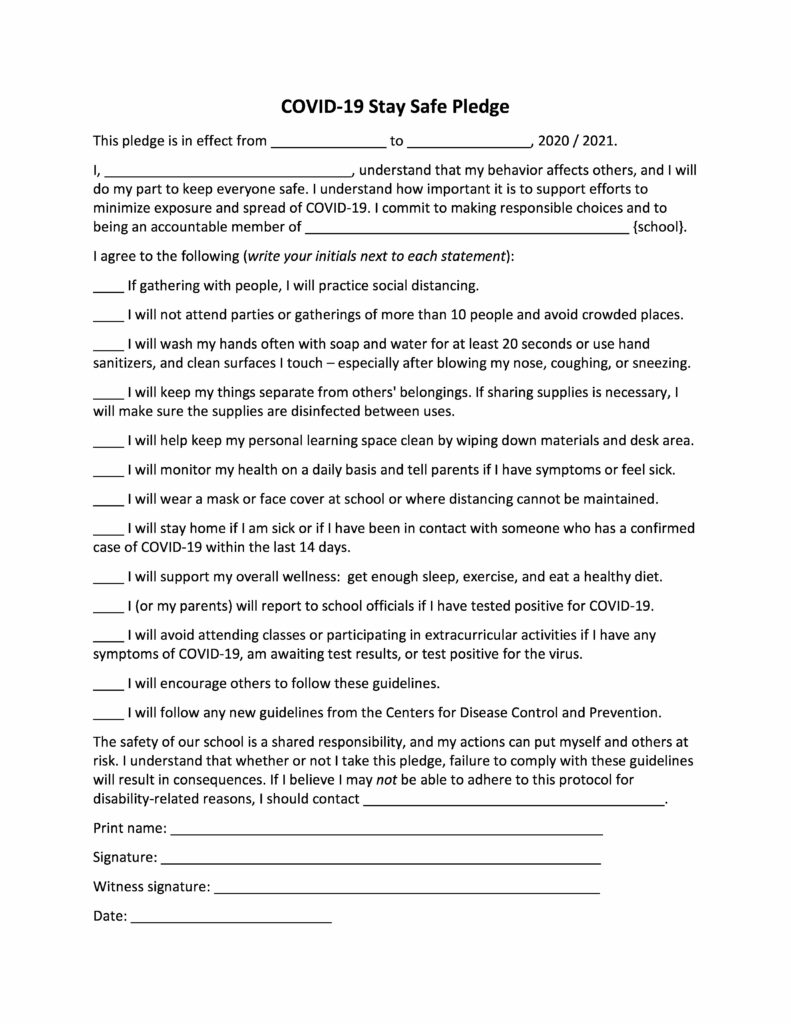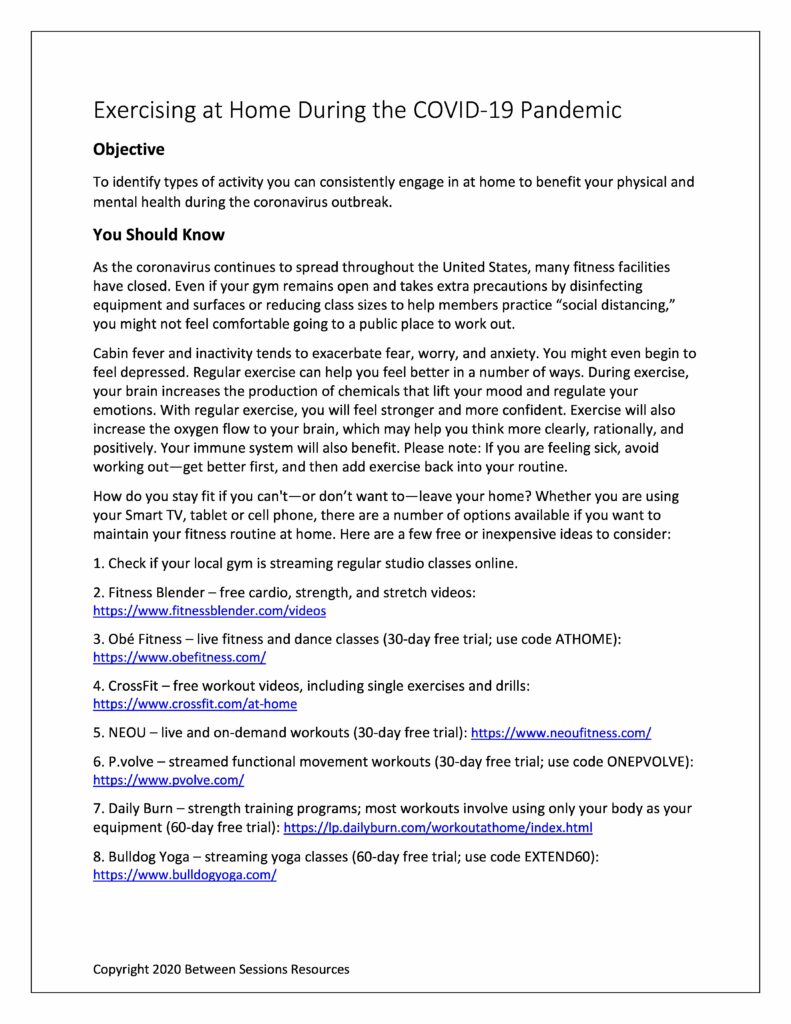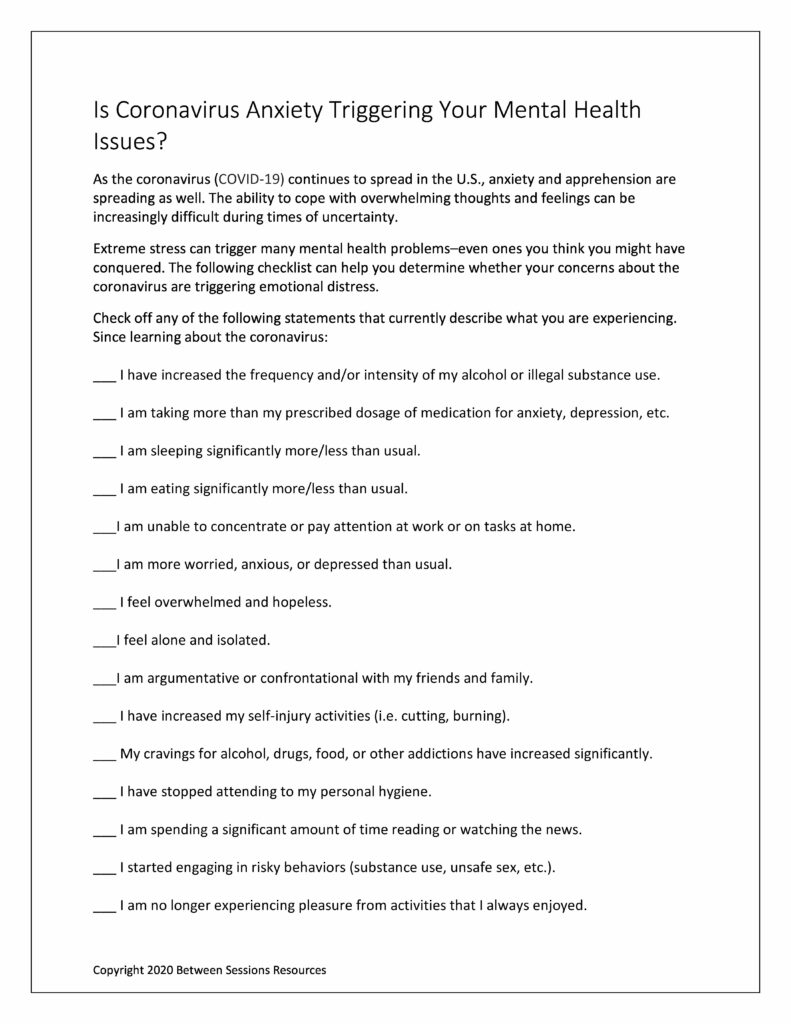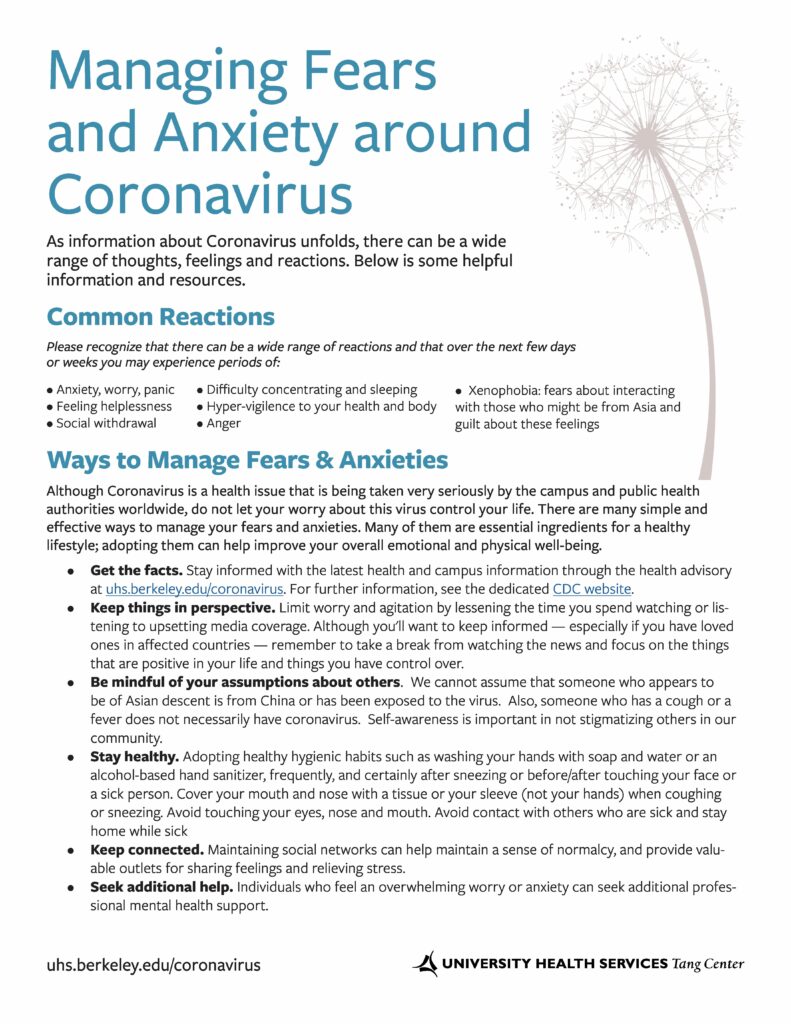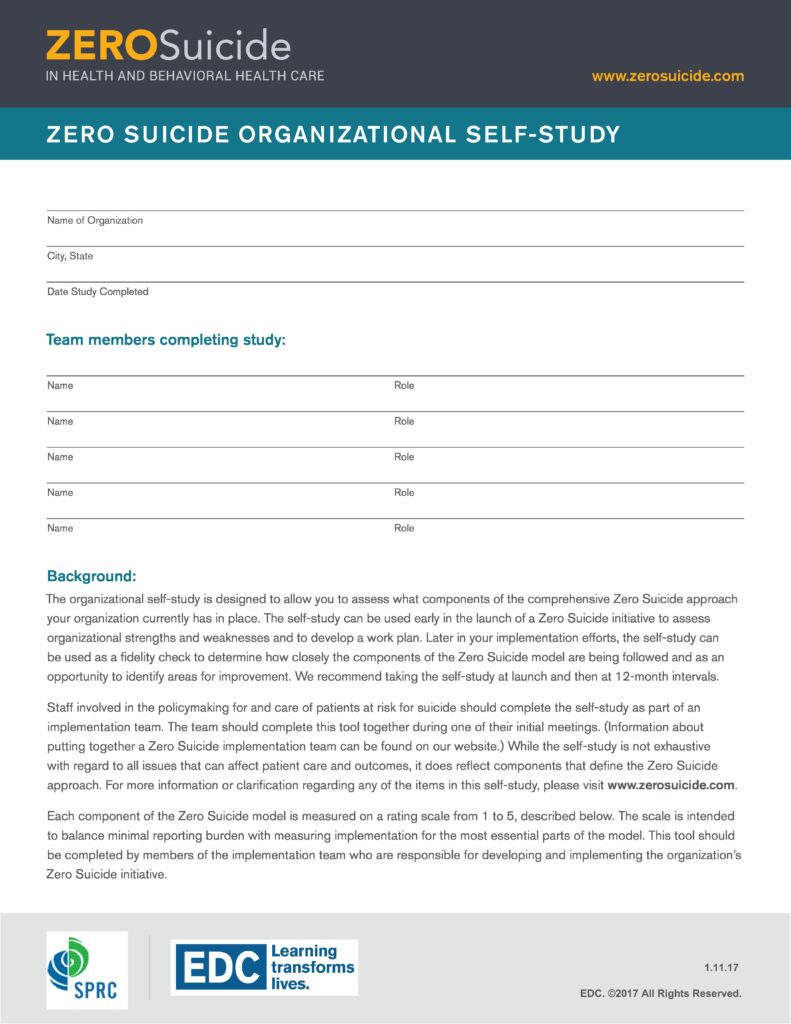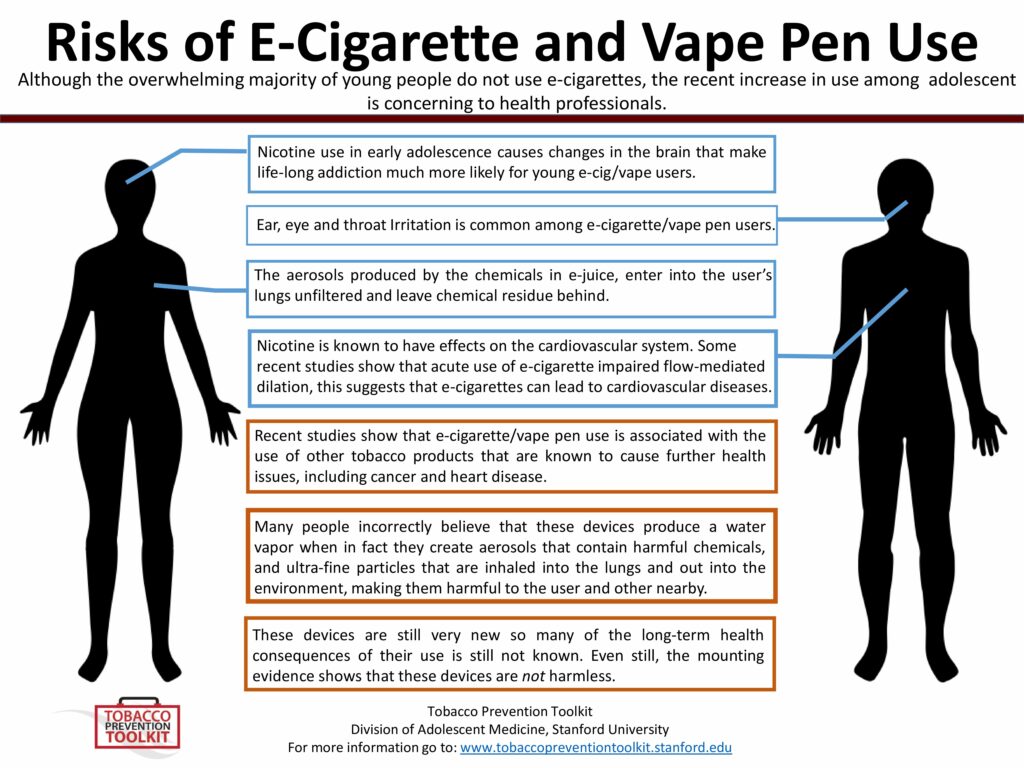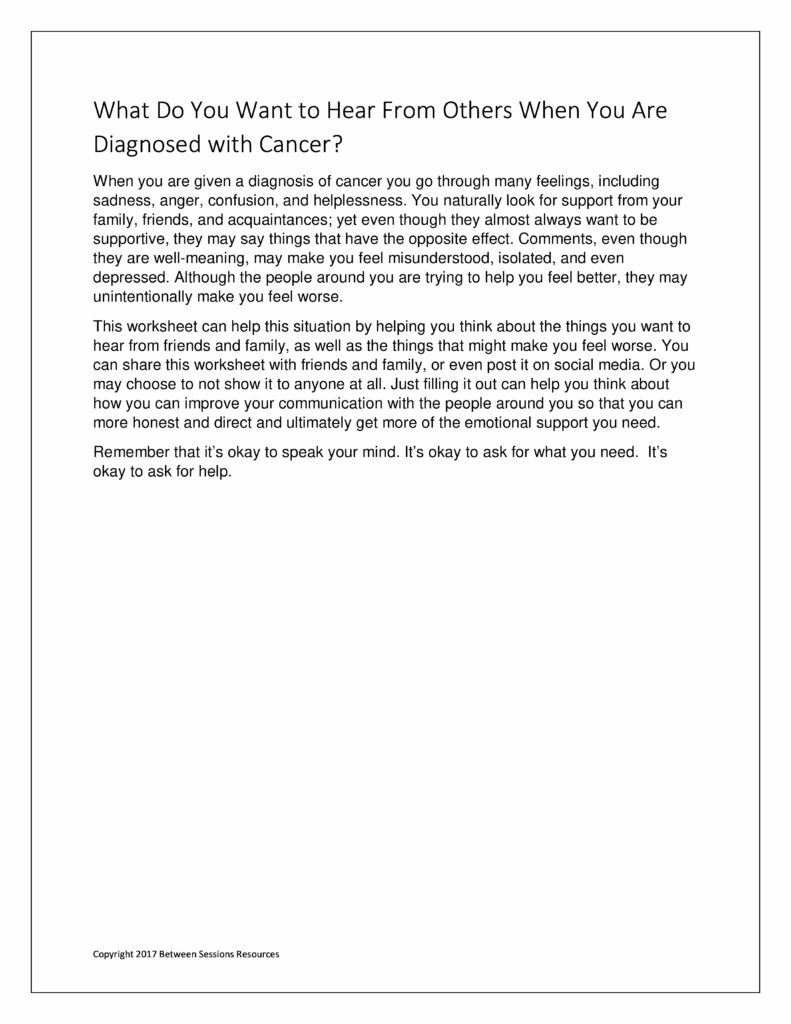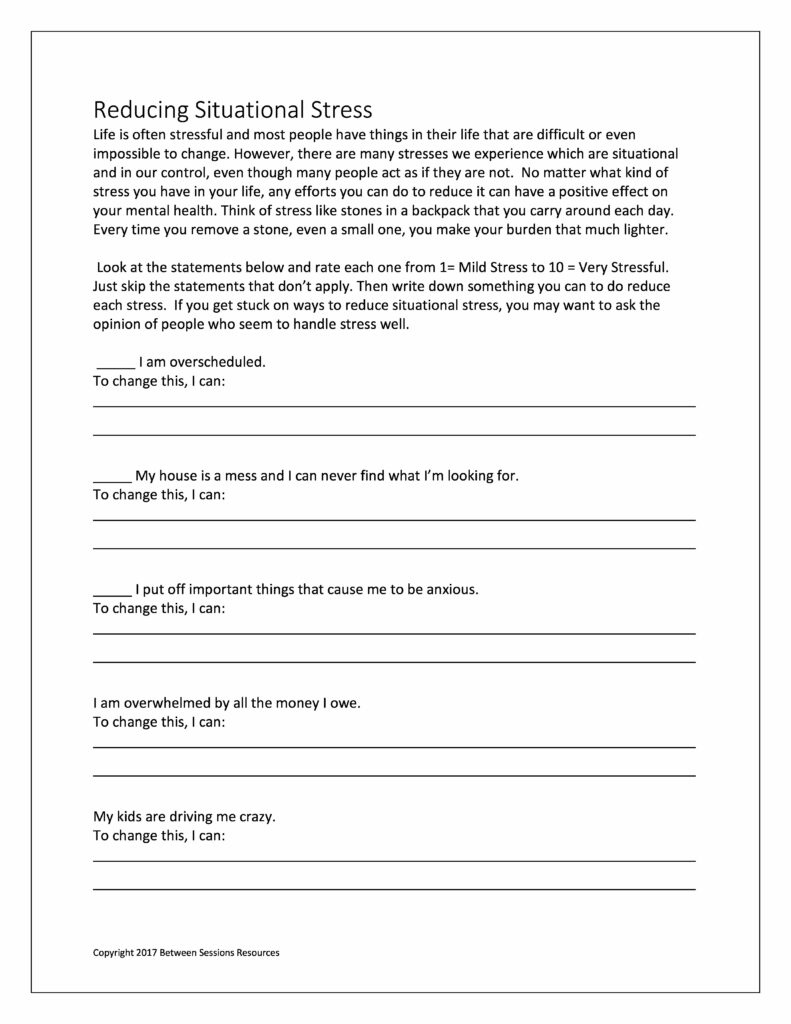This worksheet is designed to help people understand the importance of getting enough sleep. It gives people strategies to get more sleep and a form to record their sleeping habits for a week.
This worksheet is designed to help people identify and keep track of problematic habits and replace them with healthier behaviors. (1220, behavior, habit control)
This pledge is designed help keep teens from participating in behaviors that might put themselves and their families at risk for getting COVID-19. (behavior contract, pandemic, COVID-19, 092420)
This worksheet gives people ways to exercise at home during the coronavirus pandemic. It suggests different apps and online tools people can try and asks them to track their exercise habits. (depression, anxiety, exercise, coronavirus, pandemic, COVID-19, 0320)
This worksheet is intended to help people determine if anxiety about the coronavirus is triggering other mental health problems. (generalized anxiety disorder, COVID-19, pandemic, coronavirus, fear, 0320)
This fact sheet was prepared by the Univ of California at Berkeley to help people understand how to handle anxiety and fears regarding the coronavirus. (health anxiety, 0320)
Brought to you by the Zero Suicide group, this self-study assessment tool is designed to help you determine if your organization is doing all it can to prevent suicides.
This infographic can be used to remind teens about the significant health risks associated with e-cigarettes. (040318, prevention)
This worksheet is designed to help people diagnosed with cancer think about how they can improve their communication with those who care about them. The worksheet asks people to think about the supportive words they wish others would say as well as the things people might say that unintentionally makes them feel worse. (communication, recovery, cancer, 0916)
This worksheet is designed to help people identify their situational stress and determine how specific stresses can be reduced. (0817)

